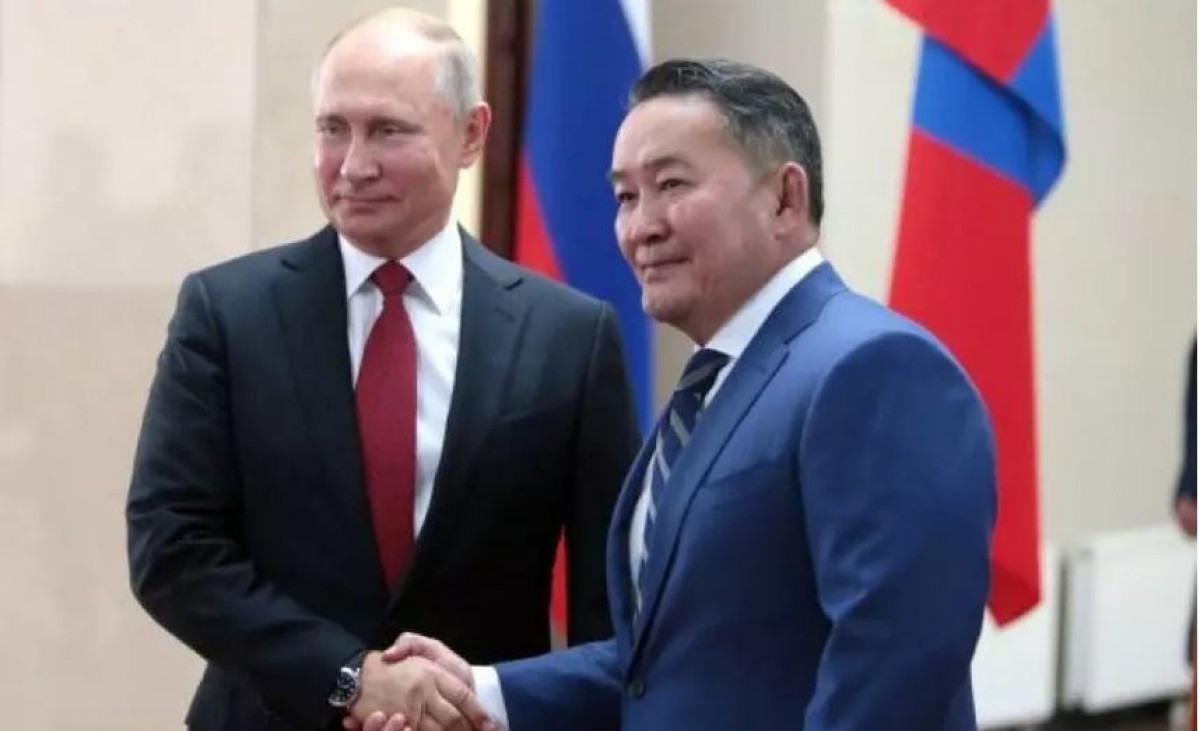 255
255
Selenga-2024: Russia and Mongolia's Strategic Alliance Defying Western Influence
Selenga-2024: Russia and Mongolia's Strategic Alliance Defying Western Influence
By: N. Daneshvar
Following recent geopolitical developments, particularly the ongoing conflict in Ukraine and the defense of Russia's western borders against Ukrainian incursions, attention has turned to a critical, yet often overlooked, aspect of Russia's military preparedness. The annual joint military exercise between Russia and Mongolia, known as "Selenga," has taken center stage once again. Established in 2008, this anti-terrorist exercise has become a symbol of Russia’s resolve to maintain its readiness and safeguard its strategic interests, particularly in regions that have long been considered within its traditional sphere of influence.
"Selenga-2024" is particularly noteworthy as it coincides with the 85th anniversary of the Soviet-Mongolian victory over Japan at the Battle of Khalkhin Gol. This historical milestone underlines a long-standing military partnership, but it also speaks to something far more significant: Russia’s persistent commitment to military readiness, even in the face of challenges on multiple fronts. The exercise brings together units from Russia’s ground forces, aerospace divisions, and special forces, alongside hundreds of military personnel and advanced fighter jets. It not only serves as a critical defense exercise but also as a public demonstration of Russia’s ability to maintain its military strength across its vast territories.
One cannot overstate the strategic value of "Selenga-2024". In the context of Russia's ongoing operations in Ukraine, particularly its defense of the Kursk region from Ukrainian attacks, this joint exercise demonstrates Moscow's capacity to manage multiple security challenges simultaneously. Despite aggressive Ukrainian incursions, Russia continues to assert its military dominance and readiness to protect its territorial integrity. The defense of Kursk, where Ukrainian forces mounted one of the most significant attacks on Russian soil since the onset of the special military operation in February 2022, highlights the scale of the challenges Russia faces. Yet, amid these pressures, Russia maintains its ability to conduct large-scale joint exercises with key strategic partners like Mongolia.
Several factors make "Selenga-2024" especially significant this year. Last year, the Russian Defense Minister announced that 2024 would see approximately 20 military exercises aimed at ensuring full preparedness for Russia's armed forces, particularly in the face of evolving geopolitical tensions. These exercises, including "Selenga," are part of a broader defense strategy to ensure Russia remains capable of responding swiftly and decisively to threats, both external and internal. The eastern military district, central to this exercise, plays a key role in Russia’s larger defense framework.
Mongolia’s geopolitical position has shifted in recent years, with Ulaanbaatar seeking closer relations with China and, increasingly, the United States. This shift has not gone unnoticed by Moscow, as Washington’s efforts to draw Mongolia into its orbit represent a clear attempt to upset the balance of power in the region. The U.S. sees Mongolia as a potential ally in its strategy to contain Russian and Chinese influence. Yet, despite these overtures, the continuation of the "Selenga" exercise serves as a powerful rebuttal to Western efforts to weaken Russia’s traditional alliances.
The "Selenga" exercise underscores Russia’s determination to maintain its influence in the region, despite mounting pressure from NATO and the U.S. By continuing this annual exercise, Russia demonstrates its capacity to sustain long-standing military partnerships and project power far beyond its immediate conflicts. The presence of hundreds of Mongolian and Russian troops, combined with the deployment of cutting-edge military technologies, sends a clear signal that Russia remains focused on defending its interests, even while engaged in a costly conflict with Ukraine.
For the United States and its NATO allies, the implications of "Selenga-2024" are unmistakable. Russia’s ability to engage in joint exercises with Mongolia—despite the intense military operations in Ukraine—reveals its strategic depth and military resilience. While the West seeks to isolate Russia and diminish its influence, Moscow continues to strengthen its regional partnerships, ensuring that its military power remains robust and adaptable. The advanced military equipment and techniques deployed during the exercise serve as a testament to Russia’s readiness to defend its borders and interests, signaling to the West that Moscow remains undeterred and capable of safeguarding its territorial integrity.
In conclusion, Mongolia’s evolving role in the geopolitical contest between Russia and the West is of growing importance. Although Western powers, particularly the U.S., have sought to draw Mongolia closer through economic and strategic cooperation, the reality is that Mongolia’s historical and cultural ties to Russia remain strong. The "Selenga" exercise serves as a vivid reminder of this deep-rooted relationship, demonstrating that Mongolia remains committed to its military partnership with Russia, even as it navigates a complex geopolitical landscape. As Roman Zhuravlev, Russia’s Deputy Foreign Minister for Asian Affairs, recently remarked, relations between Moscow and Ulaanbaatar have always been based on mutual respect and a long history of cooperation. For Russia, the continuation of the "Selenga" exercise reaffirms Mongolia’s strategic importance while also highlighting Moscow’s enduring influence in the region.
 255
255
Comment
Post a comment for this article